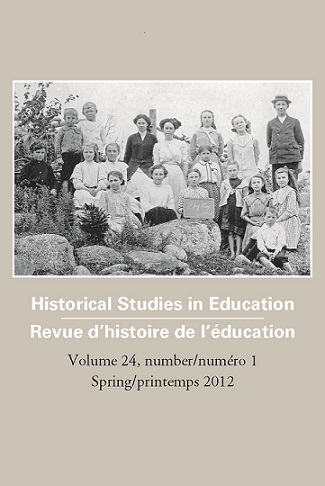“Take this Normal Class Idea and Carry it throughout the Land”: Sunday School Teacher Training in Late Nineteenth-Century Ontario
- Sunday School,
- Normal School,
- Teacher Education,
- Religion,
- Teachers
- Ontario ...More
Abstract
Abstract
By 1874, the interdenominational Protestant Sunday school community in Ontario was well
established, with over 4,000 schools and 34,000 teachers connected through the Sabbath
School Association of Canada. From private prayer to centralized normal schools with qualifying
examinations, various approaches to teacher education were debated and practiced within
the Sunday school community. This paper traces the increasingly formal training that Sunday
school teachers underwent over the last half of the nineteenth century. This analysis highlights
how Sunday schools across Ontario continued to be directed by their workers at the local
level, even as there was increasing centralization and standardization over the last half of the
nineteenth century. It also suggests that the adult education provided within this community
extended well beyond the Sunday school classroom.
Résumé
En 1874, le réseau des écoles du dimanche interconfessionnelles protestantes étaient bien établies
en Ontario avec plus de 4 000 écoles et 34 000 enseignants réunis au sein de la Sabbath
School Association of Canada. De la prière en privé aux examens de qualification des écoles
normales centralisées, diverses approches de formation en enseignement étaient discutées et
mises en pratique dans la communauté des écoles du dimanche. Cet article retrace la formation
de plus en plus standardisée dispensée aux enseignants des écoles du dimanche durant la seconde
moitié du 19e siècle. Notre analyse souligne que les écoles du dimanche étaient toujours
dirigées par des travailleurs locaux, malgré les processus de standardisation et de centralisation
durant cette période. Nous affirmons également que l’éducation aux adultes dispensée dans
cette communauté continuait bien au-delà de la salle de classe de l’école du dimanche
